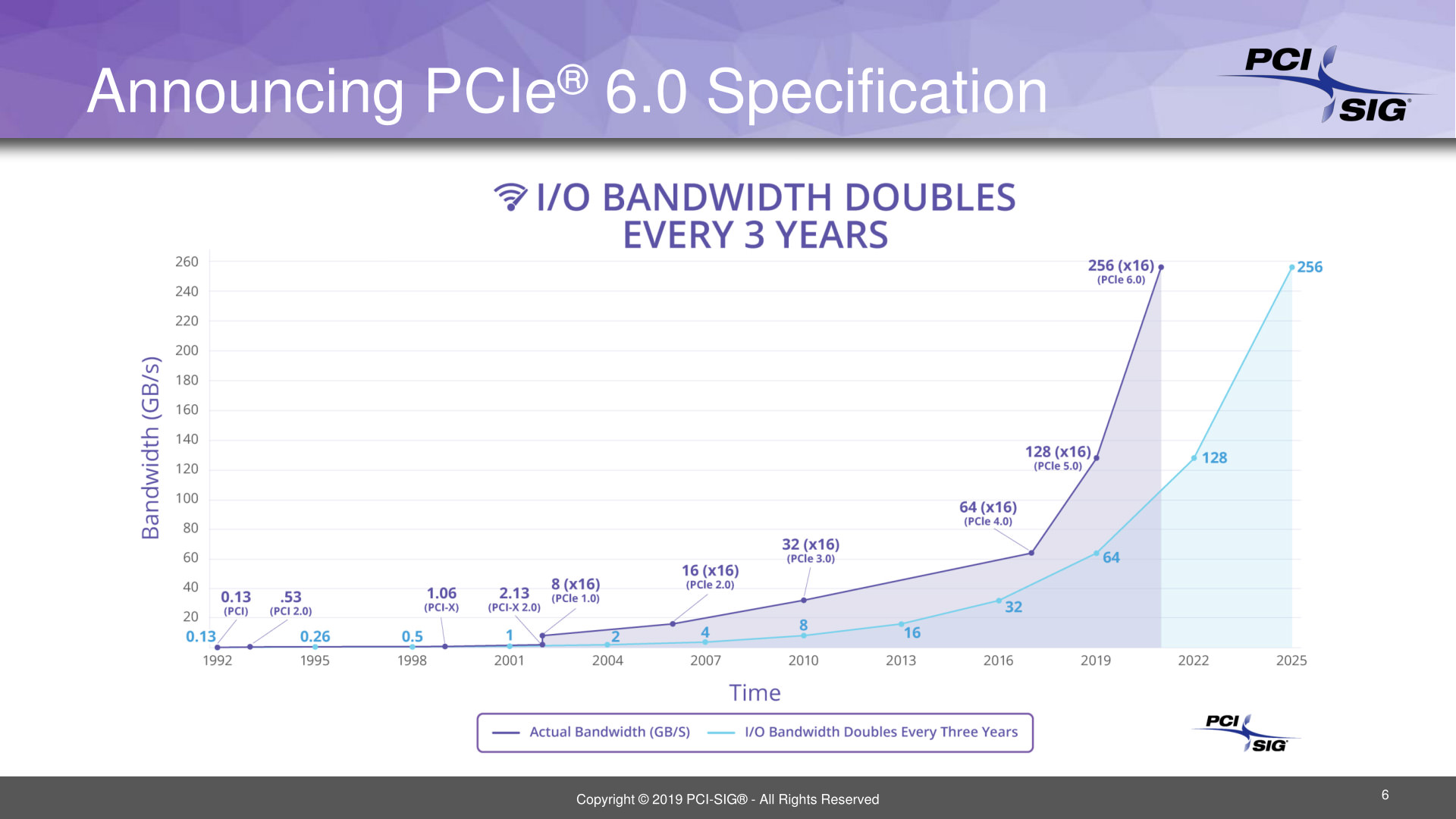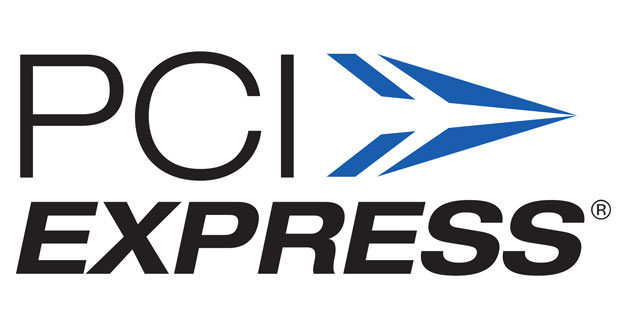The PCI Express 6.0 specifications will arrive in 2021, but we will have to wait for compatible products
The new PCI Express 6.0 specifications are arriving in 2021, currently ready for revision 0.3: the final goal is the doubling of bandwidth without losing compatibility with peripherals already on the market.
A few months ago, we reported the year 2021 as the one in which the PCI Express 6.0 specifications will be available, a new standard that will make it possible to obtain a doubling of the data-transfer bandwidth compared to what is accessible with the Gen 5.0 devices.
This is an important innovation especially considering the needs of the datacenter, which has always faced the need to ensure the highest level of data transmission speed between the devices in order to avoid processing bottlenecks.
The PCI Express 5.0 specifications were completed and ratified last May, while the PCIe 6.0 specifications have now reached revision 0.3 with plans to complete them for 2021. The PCI SIG, the body responsible for defining the specifications of PCI Express standard operation, confirmed that there will be a doubling of the data rate up to 64GT/s while maintaining full compatibility with devices based on previous generations of PCI Express specifications.

A 2021 completion of the PCI Express 6.0 specifications does not imply, of course, that products based on this will be on sale already that year. At the moment, we have some products compatible with the PCI Express 4.0 specifications, standard that has been ratified by the PCI SIG during 2017. It will take at least another 2 years before seeing products and platforms compatible with PCI Express 5.0, and 2 more for that PCI Express 6.0 standards that are being worked on.
What is evident is the desire to continue development, indicatively offering a doubling of the transmission data rate every 2 years and in this way making increasingly faster platforms and peripherals accessible.

